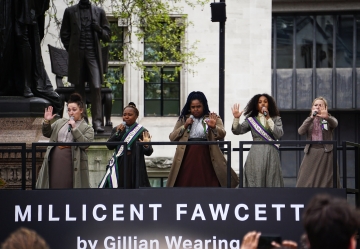Having a say
The full resource is FREE to all registered users of the website
If you are not already registered you can sign up for FREE website access to download the full resource.

This sequence of lessons is appropriate for addressing the relevant requirements of the National Curriculum for Citizenship on parliamentary democracy, voting and elections, justice, liberty and equality, as well as how citizens today take positive democratic action. The lessons draw on the historical context of the struggle for women’s equality and why it is relevant today, and can be linked to teaching about suffrage in History.
The lessons are designed for use with Key Stage 3 students and may be adapted for use with Key Stage 4. At the start of each lesson, there is a knowledge check to help teachers check that students have grasped the knowledge from previous sections. Activities in the lessons can also be used flexibly for example as part of assemblies, workshops or off-timetable sessions with students.
Key learning points
- The struggle for gender equality has gone on for centuries and continues today
- The UK political system has developed over time to give women more rights
- Women getting the vote is an example of people working together to bring about democratic change
- Many of the men and women involved in campaigning for the vote for women were ordinary citizens
- Today, a wide range of people, locally and nationally, continue to push for greater equality for women in life and work using peaceful and democratic means
Alongside the lessons, a number of case studies have been written to provide teachers with starting points for exploring changemakers and campaigners who continue to press for greater equality in society. These are included in the Resources pack. Also linked below is a film interview between students at Hamilton Academy in Leicestershire and Baroness Garden of Frognal, a Deputy Speaker of the House of Lords, on the issue of progress towards equality for women and women in politics.
